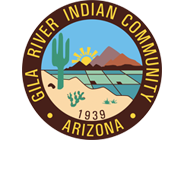 I-10 Bridge Project
I-10 Bridge Project
Overview
Developing a project to replace the aging Interstate 10 bridges over the Gila River.
In the summer of 2019, the Arizona Department of Transportation (ADOT) and partner agencies took the essential first step toward replacing the aging bridges over the Gila River, located on I-10 near milepost 173 within the Gila River Indian Community in Pinal County.
In collaboration with the Gila River Indian Community, the Federal Highway Administration, and the Maricopa Association of Governments, the study includes an environmental review and an engineering assessment to evaluate options for replacing the bridges over the Gila River.
The existing river crossing includes two quarter-mile-long bridges, one for east- and one for westbound I-10, each carrying two lanes of traffic over the Gila River. They are critical pieces of infrastructure on I-10, a Key Commerce Corridor that connects Arizona’s two largest metropolitan areas and supports significant commercial and economic growth for the region, the state and the country.
The study process, which will produce an environmental document known as a Categorical Exclusion (CE) and an engineering document called a Project Assessment (PA), will:
Evaluate the options to replace the existing bridges including the length, height, and location of the new bridges.
Assess the benefits and impacts of the replacement options, as well as ways to avoid, reduce or mitigate the potential impacts.
Study Area
The study area is located along I-10 between mileposts 172.7 to 173.7.
This project focuses only on the Gila River bridge crossings and is independent from the Environmental Assessment and Design Concept Report currently underway for the I-10 corridor between the Loop 202 and State Route 387, also within the Gila River Indian Community.
I-10 Study – Loop 202 to SR 387 Map
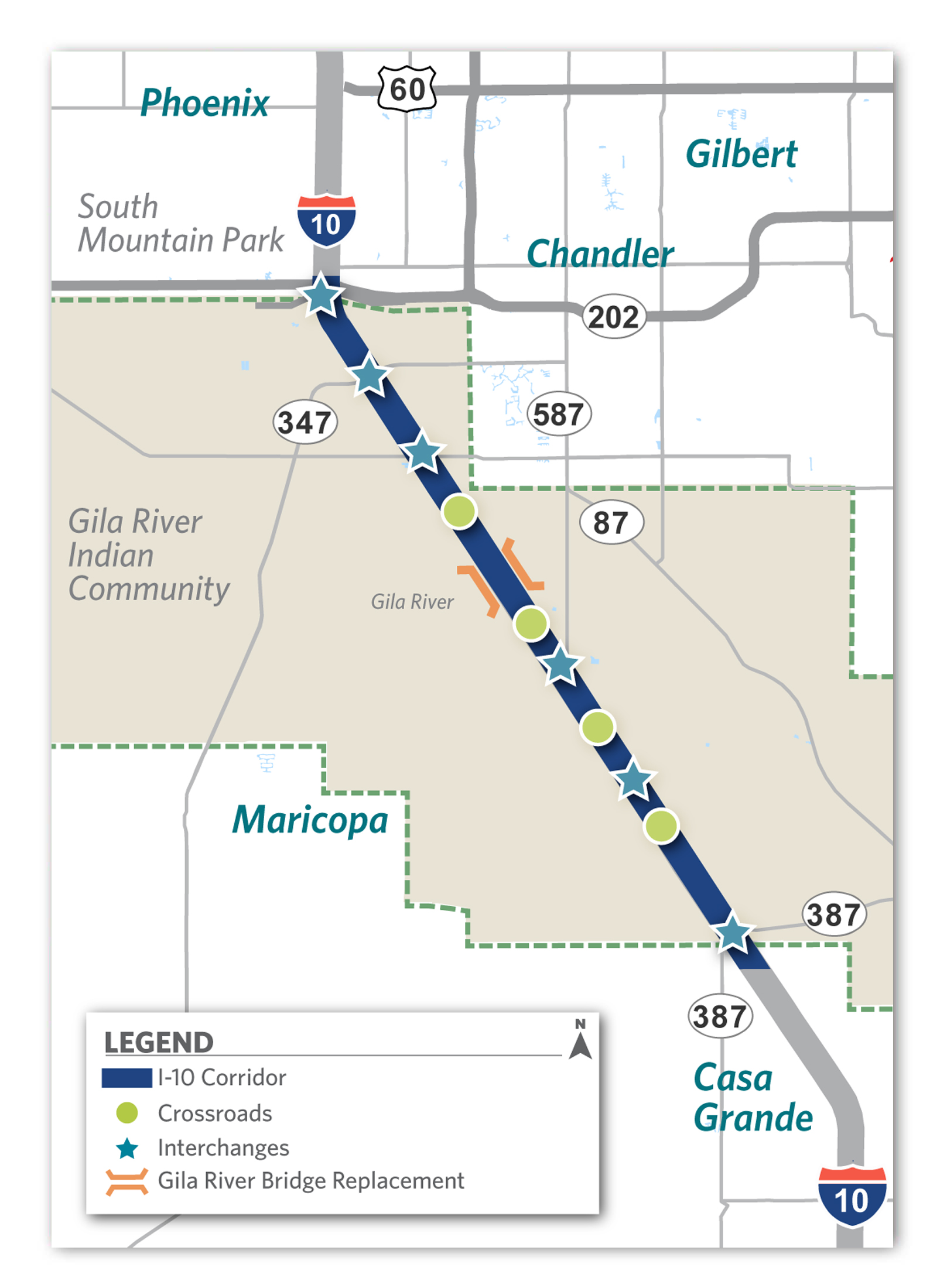
Project Map

Why is this Project Needed?
The I-10 bridges over the Gila River were constructed in 1964 with a functional lifespan of 50 to 75 years. Since then, they have carried millions of commercial, personal and other vehicles over one of the busiest stretches of I-10 in Arizona. Since being constructed, they have been impacted twice by major flood events in the Gila River.
In 1983, flood waters washed over I-10, resulting in the closure of I-10 for several weeks for roadway and bridge repairs. It is estimated that the 1983 event’s river flow was three times greater than the flow for which the bridges were designed. Ten years later, another flood event resulted in flood waters rising within inches of the bridge girders, causing concern that floating debris could damage the bridge structures and force another closure of I-10. In 1994, ADOT made modifications along and within the river near the bridges to help protect them from future flooding events.
Repairs or Replacement?
ADOT has continuously repaired, reinforced and maintained the bridge structures since they were built. As a bridge ages, the routine maintenance becomes progressively more expensive. Recent inspections indicate that expensive deck and foundation repairs are necessary in the near future if the existing bridges are to remain in place.
However, based on the last two flooding events - including one that overtopped the bridges—the more cost-effective, long-term solution is to design and construct new bridges utilizing current design standards and methods, enabling the bridges to withstand larger flood events. This is especially critical, as another major flood event along the Gila River forcing an I-10 closure would significantly impact the region’s mobility and emergency response times, and would have a noticeable, negative impact on the local and state economy. Newly designed bridges could also include wider shoulders, which would improve safety for everyone who travels over them.
As the region continues to grow, the reliability, safety and structural integrity of the bridges over the Gila River are increasingly critical to travelers.
Bridge Conditions
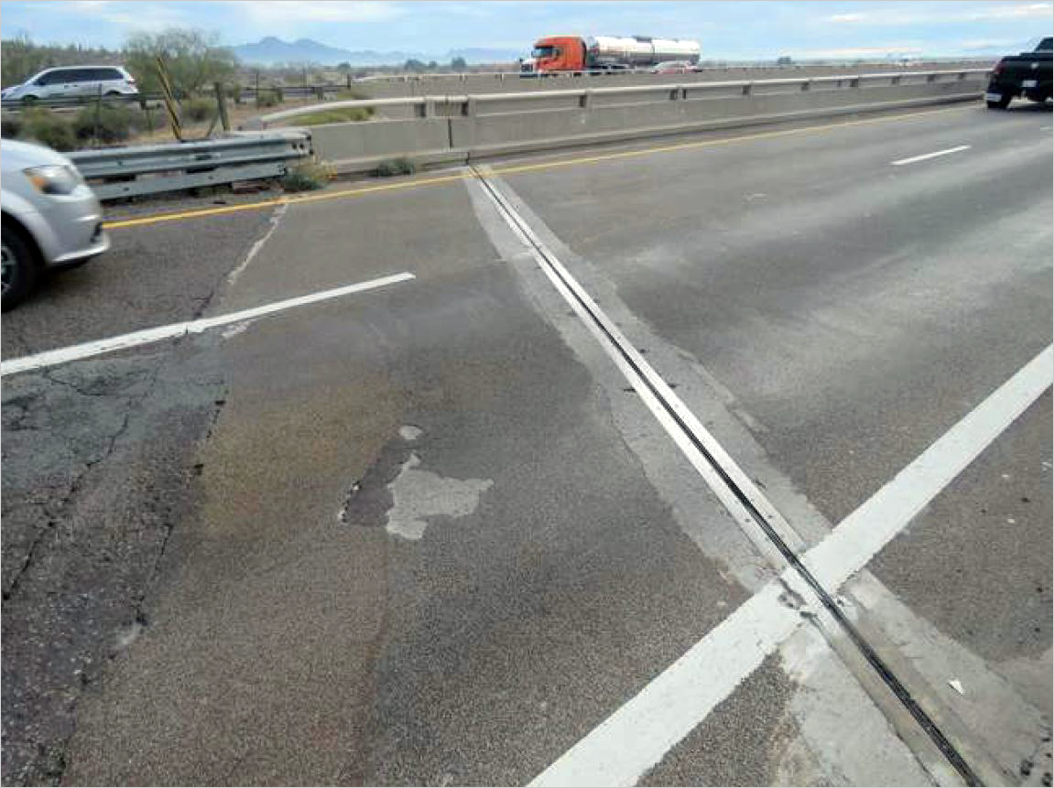
The bridge deck condition is frequently in need of repair due to the bridges’ age.
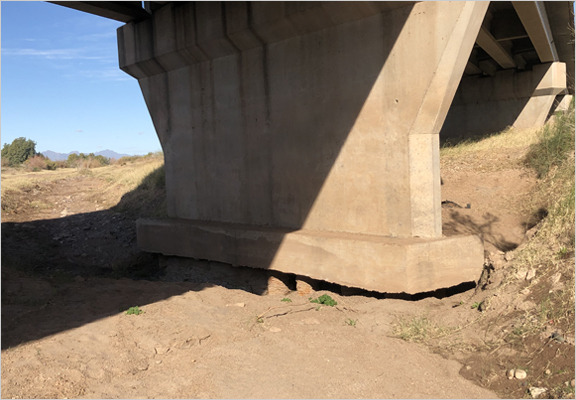
The Gila River is eroding material away from the shallow bridge foundations. While this is not an immediate concern, this could become a serious problem if we do nothing.

Your Input Is Needed...
Tell us what you think
Submit a comment using one of the methods listed below:
- Call the toll-free bilingual study line: 602-522-7797
- Email: i10bridgeproject@hdrinc.com
- USPS Mail:
I-10 Bridge Project Study Team c/o HDR, Inc.
20 E. Thomas Road, Suite 2500
Phoenix, AZ 85012
Timeline

Funding
The current estimated costs to replace the bridges is approximately $110 million. The funding for the bridge project is programmed in the fiscal year 2023 ADOT Construction Program.
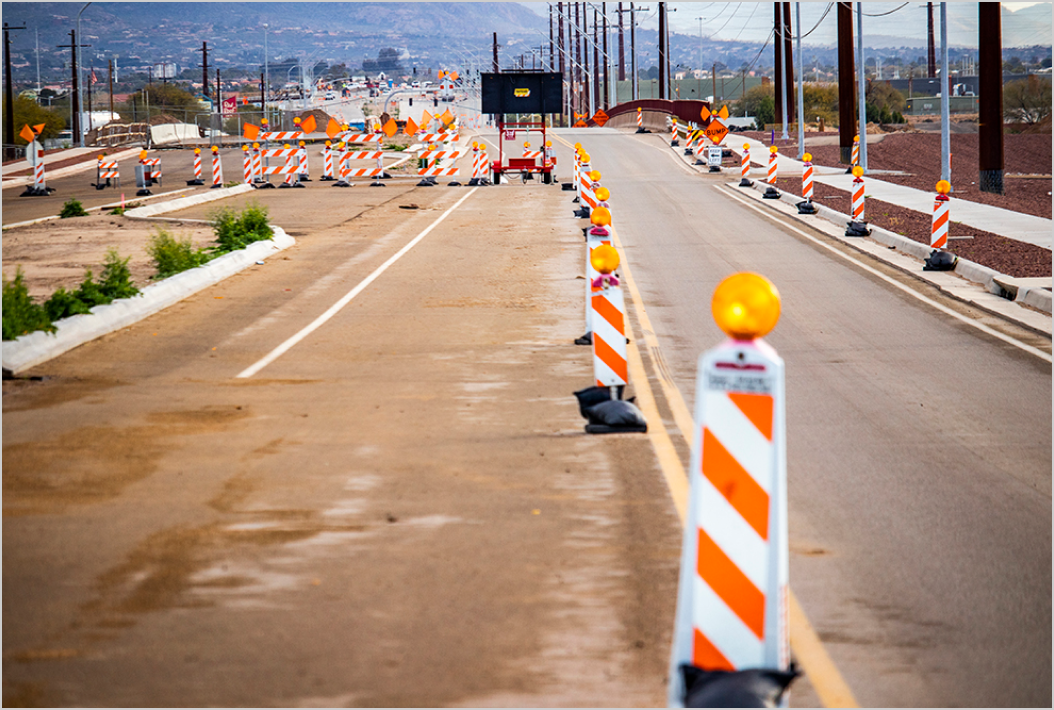
Leave a Comment
Please use the contact form or the methods listed below to send questions, comments, and feedback to the project team.

 Call the toll-free bilingual study line: 602-522-7797
Call the toll-free bilingual study line: 602-522-7797
 Email: i10bridgeproject@hdrinc.com
Email: i10bridgeproject@hdrinc.com
 USPS Mail:
USPS Mail:
I-10 Bridge Project Study Team c/o HDR, Inc.
20 E. Thomas Road, Suite 2500
Phoenix, AZ 85012
Your message has been sent!










